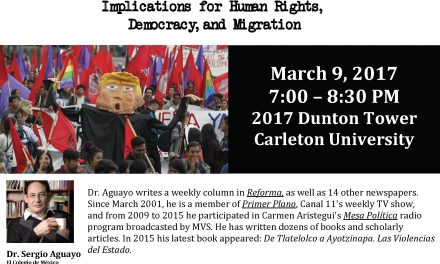International Network of People Affected by Vale: New Forms of Resistance to Global Mining Corporations
Published on Oct 30, 2014
Sponsored by the Center for Economic and Policy Research, JASS, the Guatemala Human Rights Commission, CISPES, and CIP-Americas
Hosted by The Office of Representative Hank Johnson
In early June, an unprecedented influx of child migrants fleeing violence in their communities led to a humanitarian emergency along our southern border. Late last month, 43 students in the western Mexican state of Guerrero disappeared after being detained by local police. Though the U.S. has provided hundreds of millions of dollars of assistance to security forces in Mexico and Central America, violence continues to rage in these countries, and – all too often – police and military agents from these countries appear to be a part of the problem.
While some policy makers and political leaders are calling for a Central American “Plan Colombia” to address drug-trafficking and rampant violent crime, human rights groups consider that heavy-handed and militarized enforcement methods, similar to those deployed under Plan Colombia, are making the situation worse.
This panel of leading human rights defenders from Mexico, Guatemala, Honduras and Colombia will discuss the ongoing violence taking place in their countries and offer their perspectives on the impact of current U.S. security policy in the region.
Panelists:
Maria Luisa Aguilar is the Advocacy Coordinator at Tlachinollan, a Mexican human rights group currently accompanying the families of the 43 students who were detained by the police and are still disappeared.
Alberto Yepes is the coordinator of the Observatory of Human Rights and Humanitarian Law, Colombia-Europe-U.S. Coordination.
Iduvina Hernández Batres is a Guatemalan journalist and the Executive Director of SEDEM, an organization that promotes democratic controls over citizen security.
Bertha Oliva is the founder and coordinator of the Committee of Relatives of the Disappeared in Honduras.
Moderator:
Kathryn Johnson, Guatemala Human Rights Commission



